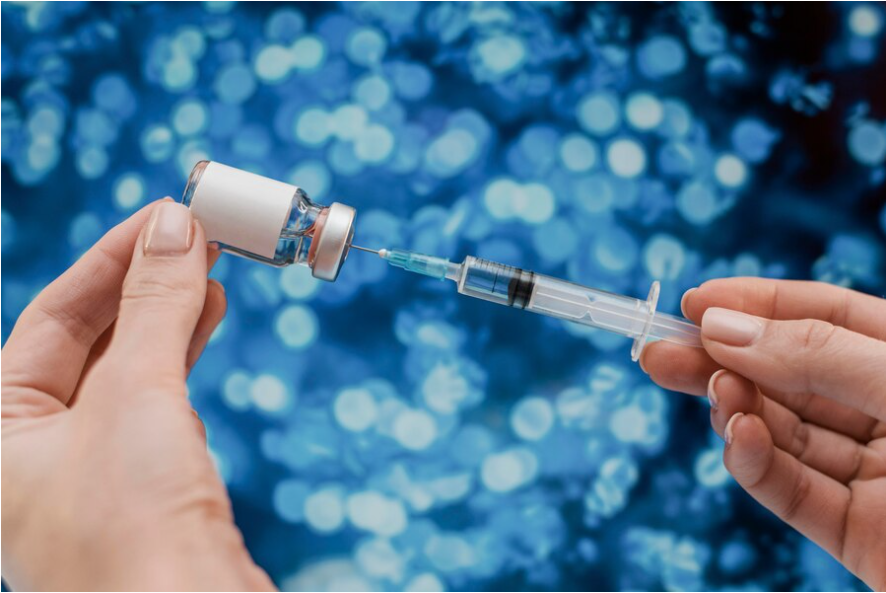In the world of anti-aging and regenerative medicine, Korea is leading the charge with innovative peptide-based therapies. These powerful molecules—short chains of amino acids—are transforming the way Korean clinics treat everything from wrinkles and fatigue to injuries and hormonal decline.
But with so many different peptides available, it can be hard to know which ones are the most effective—and safe—for your goals.
Here’s a comprehensive breakdown of the most popular peptides used in Korean clinics, how they work, and what they’re used for.
🔬 What Are Peptides and Why Are They Popular in Korea?
Peptides are naturally occurring biological molecules that act as cellular messengers. They tell your body to produce collagen, growth hormone, or healing factors, depending on the peptide.
In Korean clinics, peptides are favored because they:
- Stimulate natural biological processes
- Have fewer side effects than synthetic hormones
- Can be highly targeted for skin, fat loss, muscle gain, or healing
- Are often used alongside IV therapy, laser treatments, or skincare for enhanced results
🧪 The Most Popular Peptides in Korean Clinics (by Category)
1. Growth Hormone-Releasing Peptides (GHRPs & GHRHs)
💡 Used for anti-aging, fat loss, improved sleep, and muscle tone
🧬 CJC-1295 with DAC
- Function: Stimulates the pituitary to release more growth hormone
- Benefits: Increases energy, skin elasticity, metabolism
- Popular in Korea because: Long-acting and compatible with other peptides
🧬 Ipamorelin
- Function: Selectively stimulates GH release without affecting cortisol or prolactin
- Benefits: Promotes lean muscle, deep sleep, and recovery
- Korean doctors love it for its safety and low side effect profile
🧬 GHRP-2 and GHRP-6
- Function: Stimulate GH secretion via ghrelin receptor activation
- GHRP-2 is milder (less appetite stimulation); GHRP-6 boosts hunger
- Used for: Patients with low GH or slow metabolism
🔎 Combination tip: CJC-1295 + Ipamorelin is a top combination protocol in Seoul’s anti-aging clinics.
2. Healing & Recovery Peptides
💡 Used for injuries, post-surgery recovery, gut healing, and inflammation
🧬 BPC-157 (Body Protection Compound)
- Function: Repairs soft tissue, gut lining, and tendons
- Used for: Sports injuries, leaky gut, joint pain
- Korean clinics use it in musculoskeletal therapy or post-surgical care
🧬 Thymosin Beta-4 (TB-500)
- Function: Speeds tissue regeneration and reduces inflammation
- Popular for: Chronic pain, injury recovery, muscle healing
- Often paired with BPC-157 for faster recovery protocols
3. Immune Support Peptides
💡 Used for post-viral recovery, autoimmune modulation, and chronic fatigue
🧬 Thymosin Alpha-1
- Function: Modulates immune system, enhances T-cell activity
- Used in Korea for: Viral recovery (e.g., COVID), immunodeficiency, chronic fatigue
- Preferred for: Immune-boosting programs or chronic viral symptoms
4. Aesthetic & Skin Peptides
💡 Used for anti-aging, skin regeneration, and pigmentation
🧬 GHK-Cu (Copper Peptide)
- Function: Boosts collagen, improves skin texture, promotes hair growth
- Used in: Microneedling serums, mesotherapy, post-laser recovery
- Popular in Korea: Part of skin rejuvenation and anti-aging facial treatments
🧬 Matrixyl (palmitoyl pentapeptide)
- Function: Reduces fine lines and improves skin elasticity
- Used in: Korean luxury skincare products and post-treatment creams
- Safe for: Daily topical use
5. Sexual Wellness & Libido Peptides
💡 Used to improve sexual function in both men and women
🧬 PT-141 (Bremelanotide)
- Function: Stimulates melanocortin receptors related to sexual arousal
- Benefits: Enhances libido without affecting testosterone or estrogen
- Used for: Erectile dysfunction, low libido
- Caution: Can cause flushing or nausea; must be prescribed and monitored
6. Tanning & Pigmentation Peptides
💡 Used in aesthetic clinics for even skin tone or tanning
🧬 Melanotan II
- Function: Stimulates melanin production for skin darkening
- Used for: Creating a natural tan or reducing sunburn risk
- Rare in Korea due to potential side effects; only used in highly supervised settings
🇰🇷 Why Korean Clinics Excel in Peptide Therapy
- Medical-grade peptide sourcing from licensed compounding pharmacies
- Strict MFDS (Korean FDA) regulations ensure purity and safety
- Advanced protocols combining peptides with stem cell therapy, IV drips, and functional medicine
- Customized dosing based on hormone tests and biomarker tracking
- Emphasis on prevention and subtle rejuvenation over aggressive intervention
💡 How Peptides Are Administered in Korea
- Subcutaneous injections (most common)
- IV infusions (especially for healing and recovery)
- Topical creams or microneedling serums (aesthetic use)
- Nasal sprays (e.g., for PT-141)
- Oral lozenges (less common due to low absorption)
⚠️ Safety First: Only Use Peptides Under Medical Supervision
Although peptides are generally well-tolerated, improper use can lead to:
- Water retention
- Hormonal imbalance
- Fatigue or dizziness
- Appetite changes (with GHRPs)
💬 Korean doctors recommend full lab testing and follow-up monitoring before and during treatment.
Final Thoughts
Korean clinics are at the forefront of peptide-based therapies—offering patients a blend of science, safety, and sophistication. Whether you’re looking for youthful skin, improved energy, injury recovery, or immune support, there’s a peptide protocol tailored to your needs.
Explore the options with a qualified anti-aging or functional medicine doctor in Korea, and begin your personalized path to rejuvenation.




